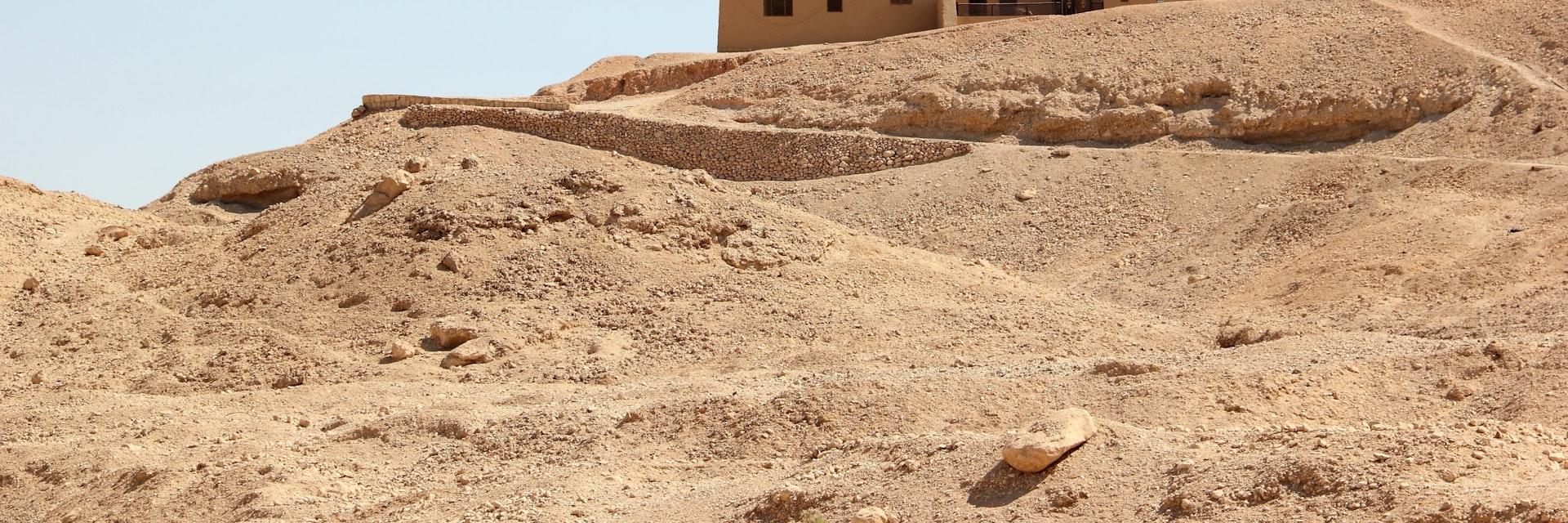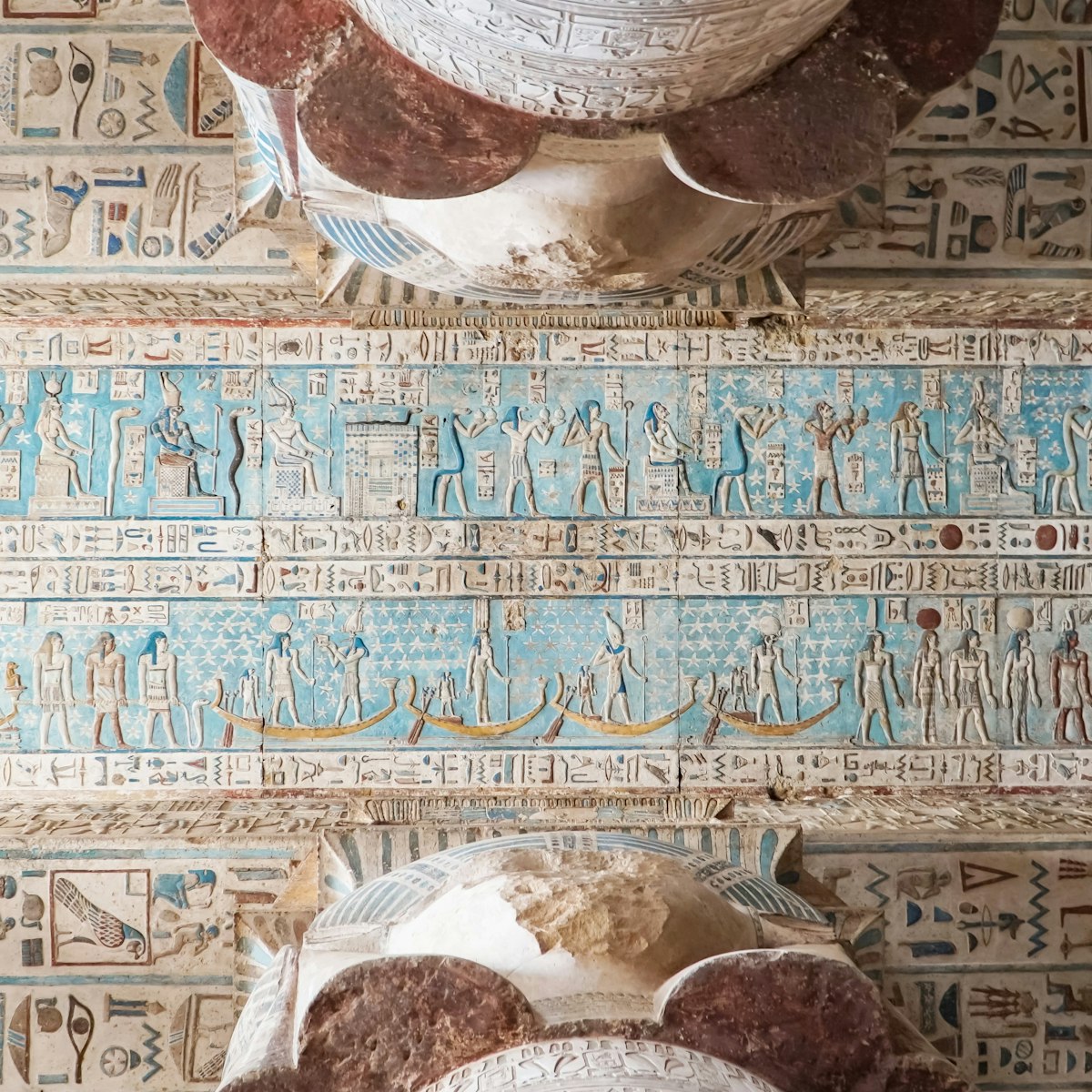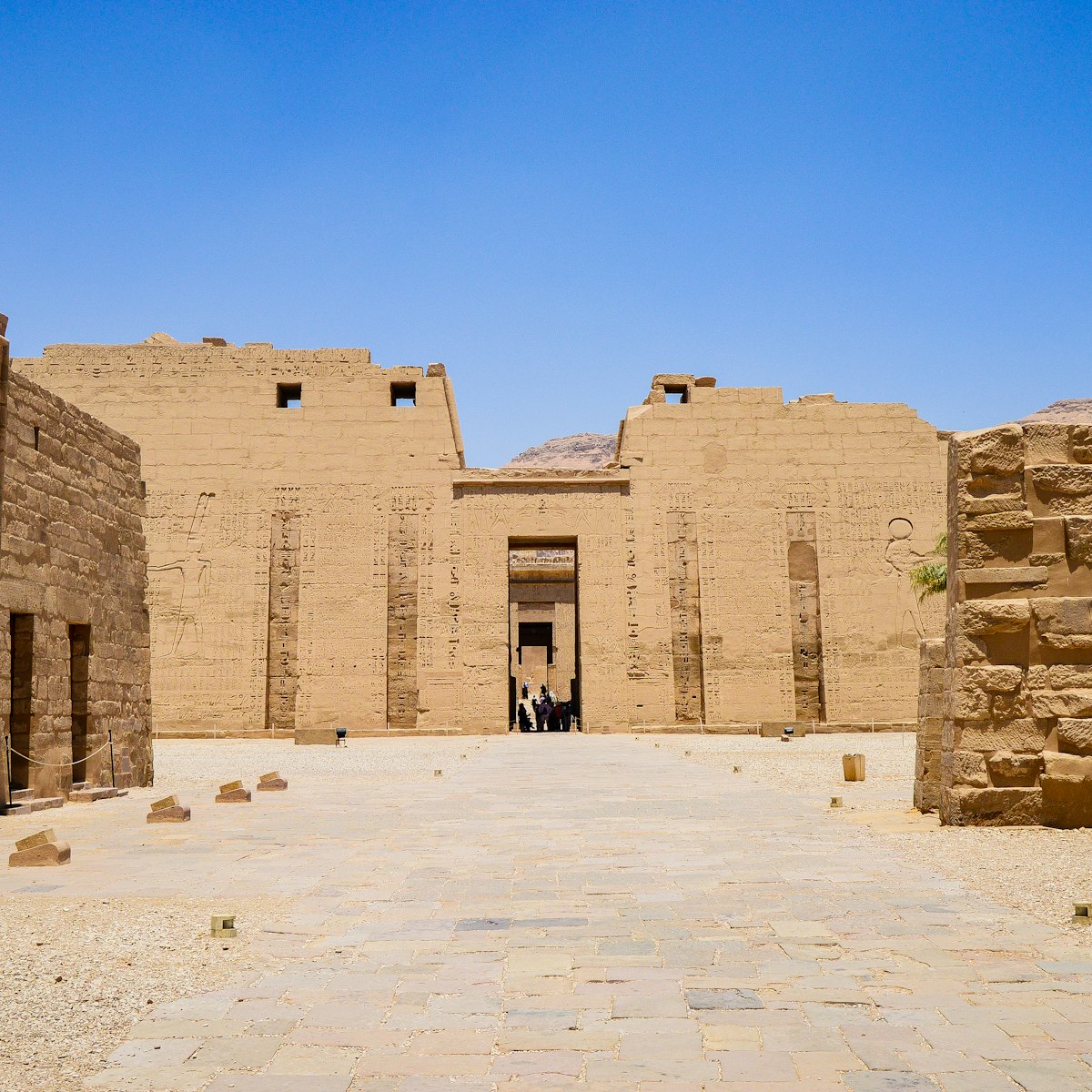The domed mud-brick house where Howard Carter lived during his search for Tutankhamun’s tomb is surrounded by a garden on what is otherwise a barren slope above the road from Deir Al Bahri to the Valley of the Kings. The house has been restored and decorated with pictures and tools of the excavation. An exact replica of Tutankhamun's burial chamber has been constructed on the edge of the garden along with an exhibition relating to the discovery of the tomb.
The replica has faithfully copied the shape of the original tomb, but only the burial chamber (right-hand side) has been reproduced here. The work is intended to challenge assumptions about our desire to see original objects and also to take some of the pressure off the original tomb. Although the young pharaoh's mummy has not been included, every detail of the burial chamber has been exactly reproduced, including dust and pitting on the walls, the wooden railing, and cracks in the sarcophagus.The left-hand storeroom (not open in the original tomb) has been used to mount displays explaining how the tomb was discovered and reproduced.
There is a cafe space on the side of Carter's House which, when it reopens, will make this a peaceful place to stop for refreshment. The mud-brick building on the little hill above Carter's house belonged to the French conservator Alexandre Stoppelaëre. An Egyptian architect built the house for him in 1950. Empty for many years, it has now been restored as the base for the Theban Necropolis Preservation Initiative, a collaboration between the Factum Foundation for Digital Technology in Conservation in Madrid, the University of Basel and the Ministry of Antiquities in Egypt.








